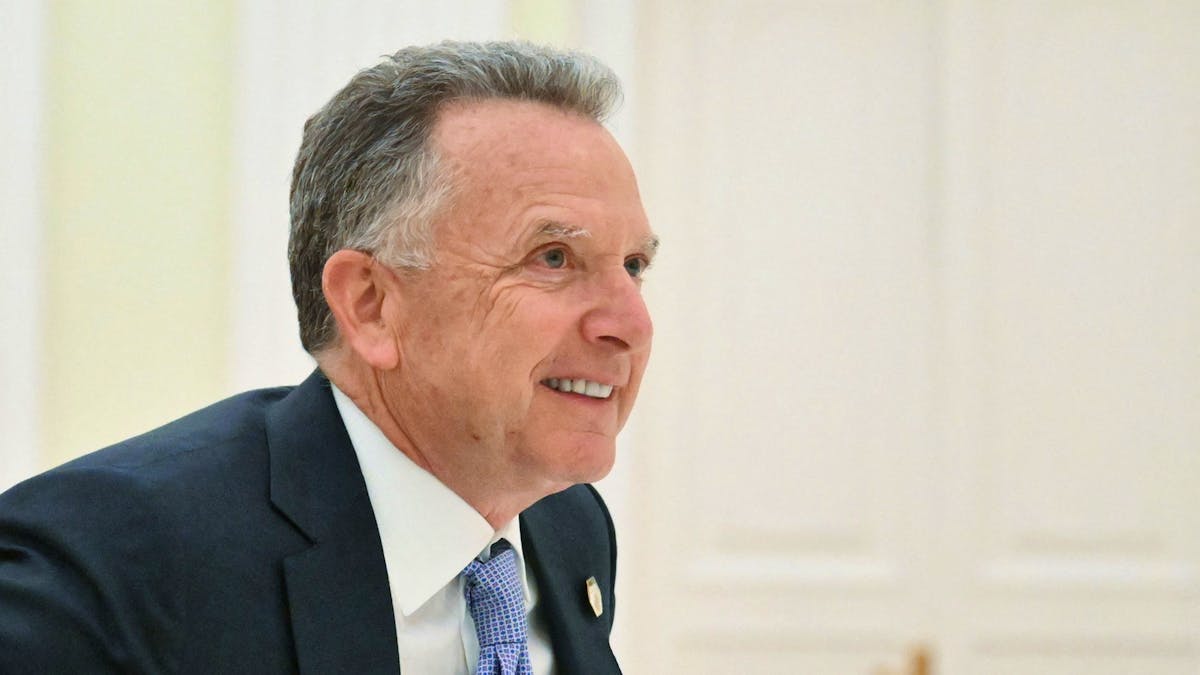The United States and Iran have completed a fourth cycle of nuclear negotiations in Mascate Sunday, without announcing a breakthrough but by posting prudent optimism.
In a context of increasing opposition from the United States to the enrichment of uranium by Iran, the Iranian Minister of Foreign Affairs Abbas Araghchi and the emissary for the Middle East Steve Witkoff have had a new series of discussions via the Omanai mediator.
This intervened before a tour in the Middle East of American President Donald Trump, who will lead him to Saudi Arabia, Qatar and the United Arab Emirates from May 13 to 16.
“The fourth cycle of indirect negotiations between Iran and the United States is over. Difficult discussions but useful to better understand each other’s positions and to find reasonable and realistic means to overcome the differences, “Iranian foreign spokesperson, Esmaïl Baqhaï said.
“We are encouraged by the results of today’s discussions and look forward to our next meeting, which will be held in the near future,” said a senior American official on condition of anonymity.
According to him, the discussions “which were again direct and indirect, lasted more than three hours”.
Just before the talks, Mr. Araghchi reaffirmed that the right of his country to the enrichment of uranium was “non -negotiable”.
“Take another way”
Steve Witkoff warned him on Friday that the Trump administration would oppose any enrichment.
“This means dismantling, the ban on militarization, and that Natanz, Fordo and Ispahan (their three enrichment facilities) must be dismantled,” he told the Conservative media Breitbart News.
As for the talks, “if they are not productive on Sunday, they will not continue and we will have to take another path,” he warned.
The talks aim to conclude a new agreement supposed to prevent Iran from having atomic weapons, an ambition that Tehran has always denied, in exchange for a lifting of sanctions which paralyze the Iranian economy.
Iran currently enriches uranium at 60%, well beyond the limit of 3.67% set by the 2015 agreement, while a rate of 90% is necessary for military use. Its stocks of fossil matter worry the Western powers.
“The most dangerous in the world”
Iran had said that it would demand during Sunday negotiations the lifting of sanctions and the recognition of its right to nuclear energy for peaceful purposes.
“Pressure is a tactic used in negotiations, it serves as a lever but deeply affects the atmosphere of talks,” said Yousuf al Bulushi, who presides over the Omanian reflection group, Muscat Policy Council.
He considered that “it will take time (for a breakthrough), but (that it) remains optimistic”.
An agreement concluded in 2015 between Iran and the major powers to supervise the Iranian nuclear program in exchange for lifting of international sanctions became obsolete after the withdrawal of the United States in 2018, during the first term of Donald Trump.
Western countries, first of all, of which the United States, and Israel suspect Iran to seek to acquire the atomic weapon, Mai Tehran affirms that its program is intended for civil purposes.
The 2015 Agreement provides for reestablishing international sanctions in the event of non-compliance by Iran of its commitments, an option that expires in October.
In the meantime, Donald Trump has relaunched his so -called “maximum pressure” policy on Iran, notably targeting the petroleum sector, and press the Islamic Republic to negotiate while threatening to bomb it in the event of diplomacy failure.
Israel said Iran, its sworn enemy, should not be able to acquire nuclear weapons. “The most dangerous diet should in no case get the most dangerous weapon in the world. His uranium enrichment facilities must be dismantled, “said his head of diplomacy Gideon Saar.
Iran and the United States, which has not had diplomatic relations since 1980, have held three sessions of talks under Omanaise mediation since April 12.

